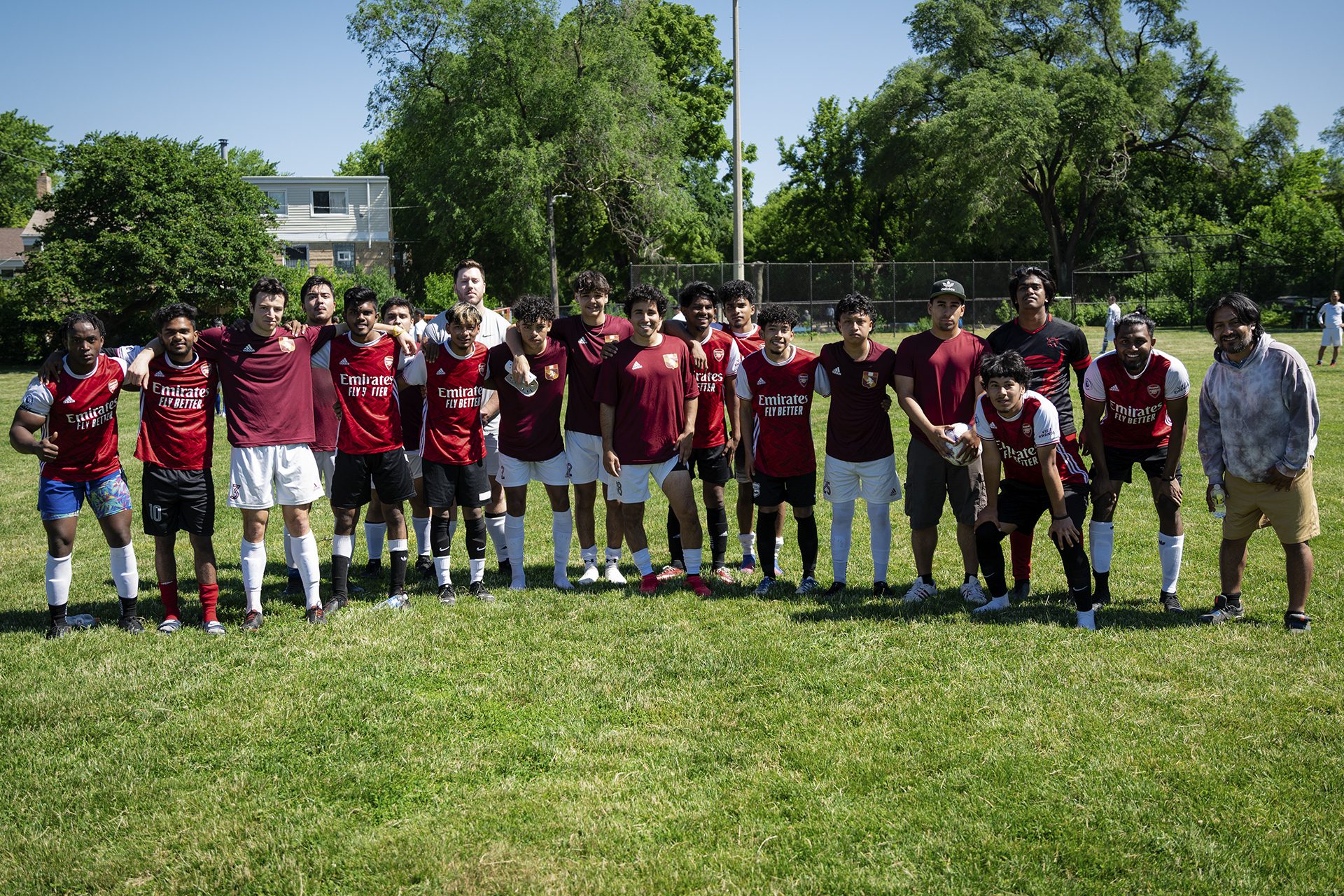 Jonathan Aguilar/Revista sin fronteras
Jonathan Aguilar/Revista sin fronterasRefugiados de más de 15 países jugaron un torneo de fútbol en el Día Mundial del Refugiado de Chicago.
El sábado por la mañana temprano, una docena de equipos de fútbol aficionados se reunieron para competir en el Pottawattomie Park, en el extremo norte de Chicago. A primera vista, parecía otro partido normal de fin de semana en el parque.
Pero al comenzar los partidos, se oían llamadas al balón en dari, malayo, turco y español, idiomas que cambiaban de equipo a equipo y a medida que el balón se desplazaba por el campo.
Noticias que ponen el poder en el punto de mira y a las comunidades en el centro.
Suscríbase a nuestro boletín gratuito y reciba actualizaciones dos veces por semana.
Los jugadores, refugiados e inmigrantes de más de 15 países, entre ellos Afganistán, Malasia, Turquía, Tanzania y Togo, se reunieron para disputar una competición al estilo de la Copa del Mundo, en el marco del 20º aniversario de la Convención sobre los Derechos del Niño. Día Mundial del Refugiado en Chicago.
Ibrahim Polat, estudiante de la Universidad de Illinois Chicago, jugó en el equipo turco.
"Es un buen acontecimiento", afirma Polat. "Pero debería ser más grande... quizá a escala nacional".
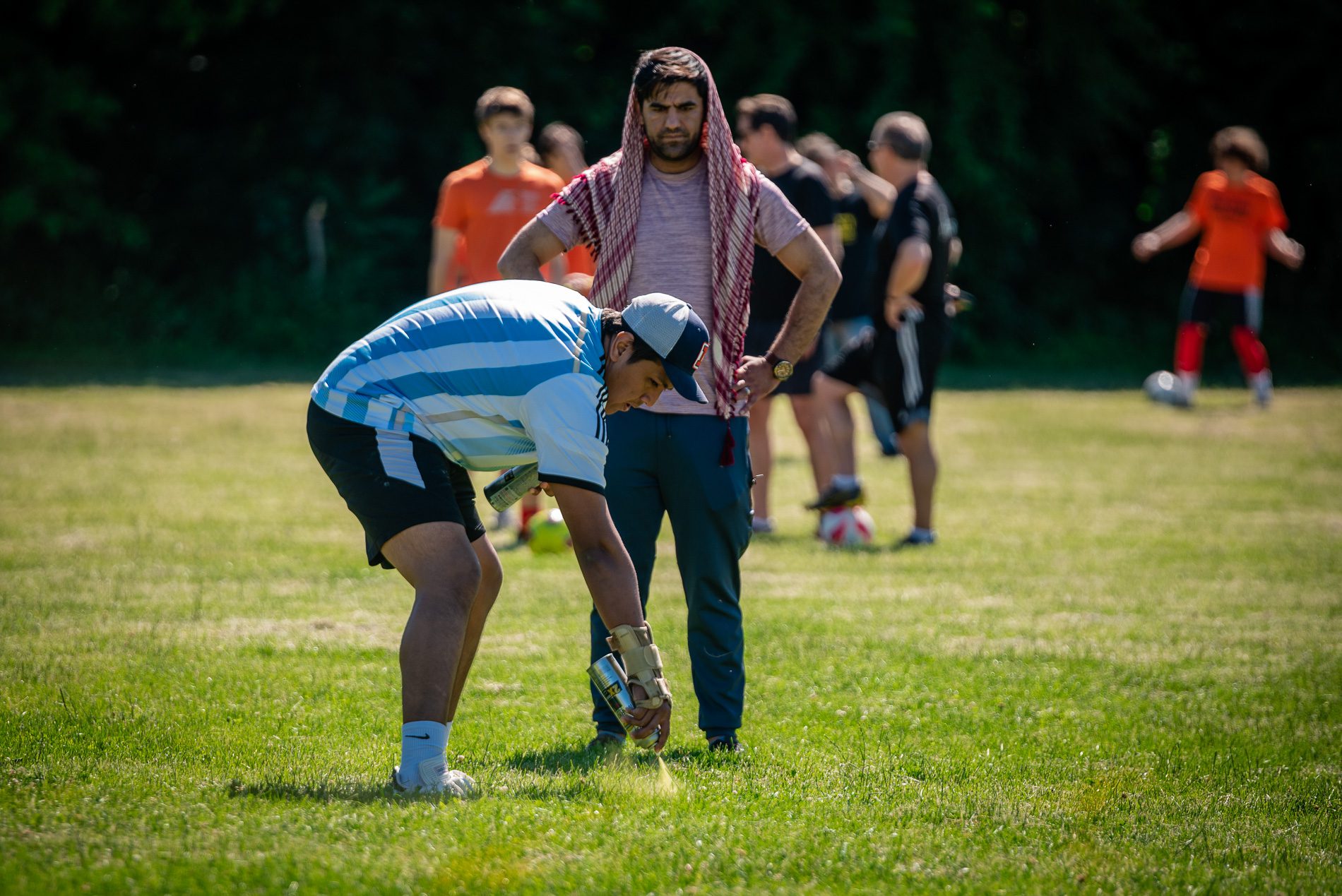
La familia de Polat llegó a Estados Unidos hace cinco años desde Ankara, la capital turca. Tras un fallido golpe de Estado en 2016, el gobierno persiguió a decenas de miles de turcos -entre funcionarios, soldados y ciudadanos particulares- asociados a un movimiento al que se atribuía la intentona golpista. La familia de Polat fue una de las miles de personas que huyeron del país.
La transición de la familia de Ankara a Patterson (Nueva Jersey) y luego a Chicago ha sido dura.
"Cuando vienes de otro país no sabes nada, básicamente. No sabes inglés. No conoces a nadie", dice Polat. "Mi padre trabajaba en el supermercado de mi tío. Pero, aun así, económicamente no ganas mucho dinero".
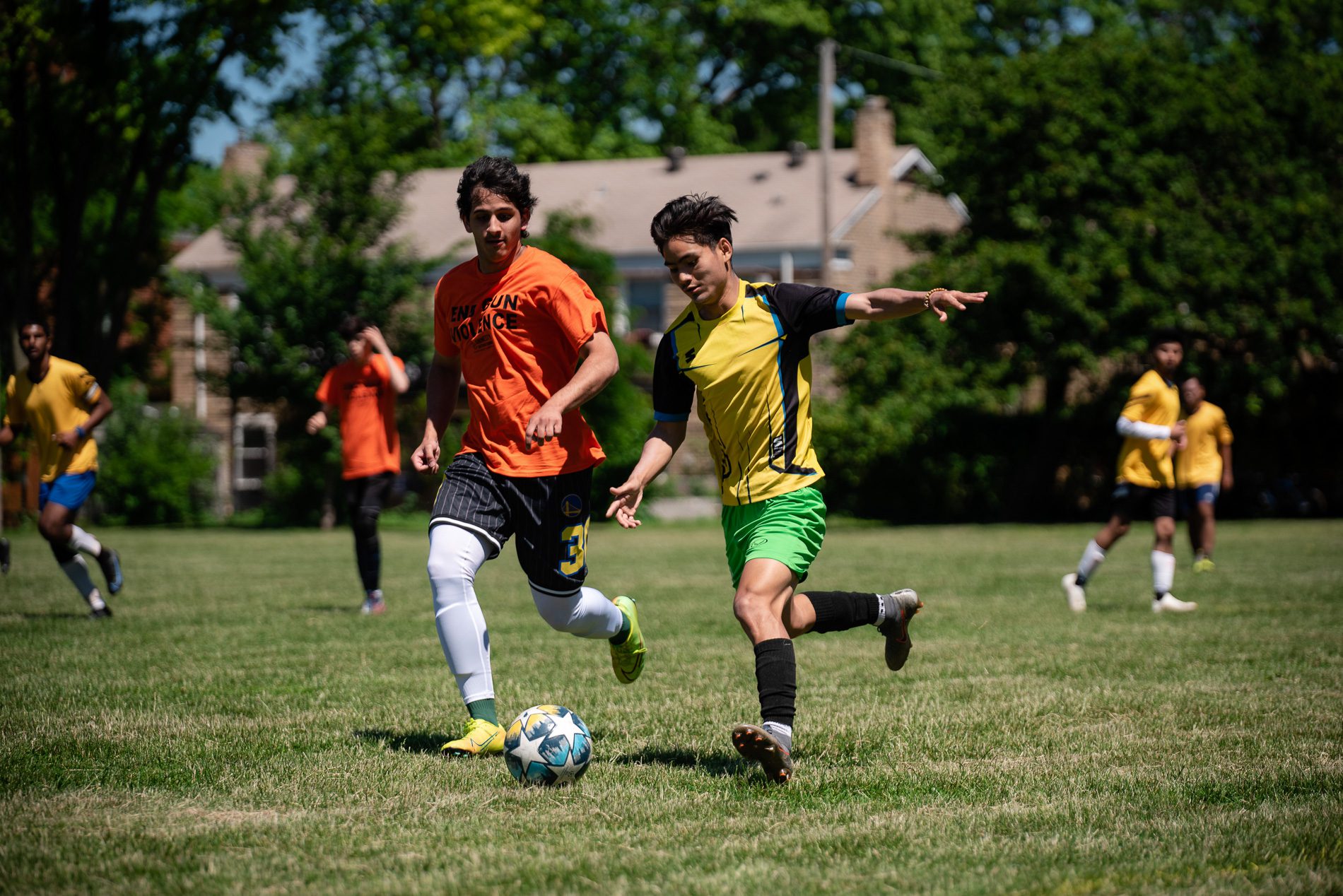
Pero el sábado, Polat y sus compañeros turcos no pensaban en sus penurias. Su mente estaba en ganar el torneo.
En el descanso, el equipo turco iba perdiendo por 3-0. En un último intento por darle la vuelta al partido, tomaron la decisión improvisada de pedir prestado a un jugador de habla turca del equipo afgano. Perdieron, pero Polat seguía contento con el torneo.
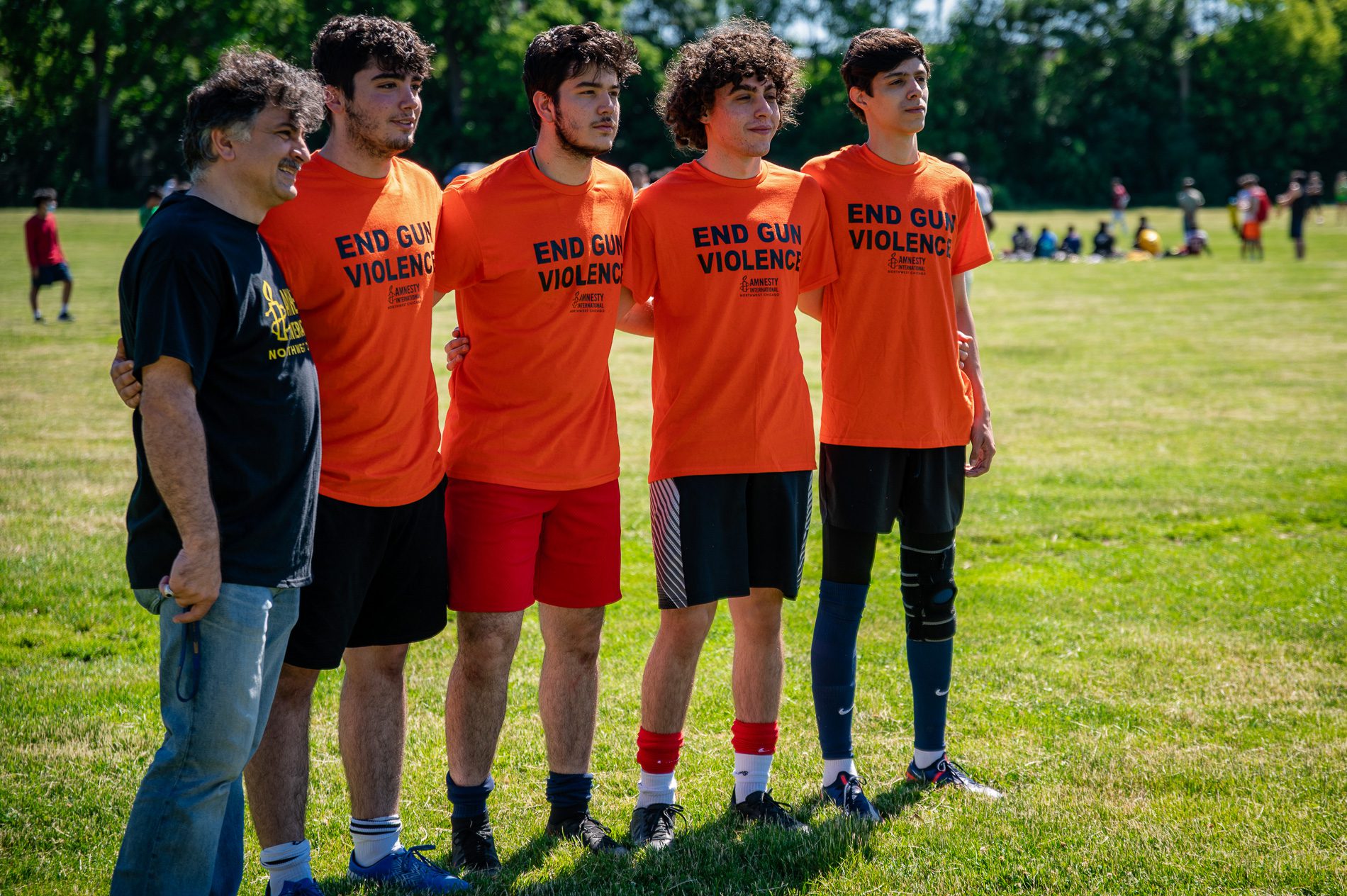
"Es muy bonito que hayan hecho un acto así", dijo. "Es bonito que alguien se preocupe".
Además del torneo de fútbol, que regresó este año tras un paréntesis de dos años debido a la pandemia, el Día Mundial de los Refugiados incluyó una marcha solidaria, actuaciones de música y danza y lecturas de poesía a cargo de más de 20 artistas. Representaban a lugares de África, Asia y Sudamérica.
Emma Yaaka y Rebkah Zellelew, principales organizadoras del acto, estaban encantadas de celebrarlo por fin en persona. Ambas están muy vinculadas a las comunidades de inmigrantes de Chicago.
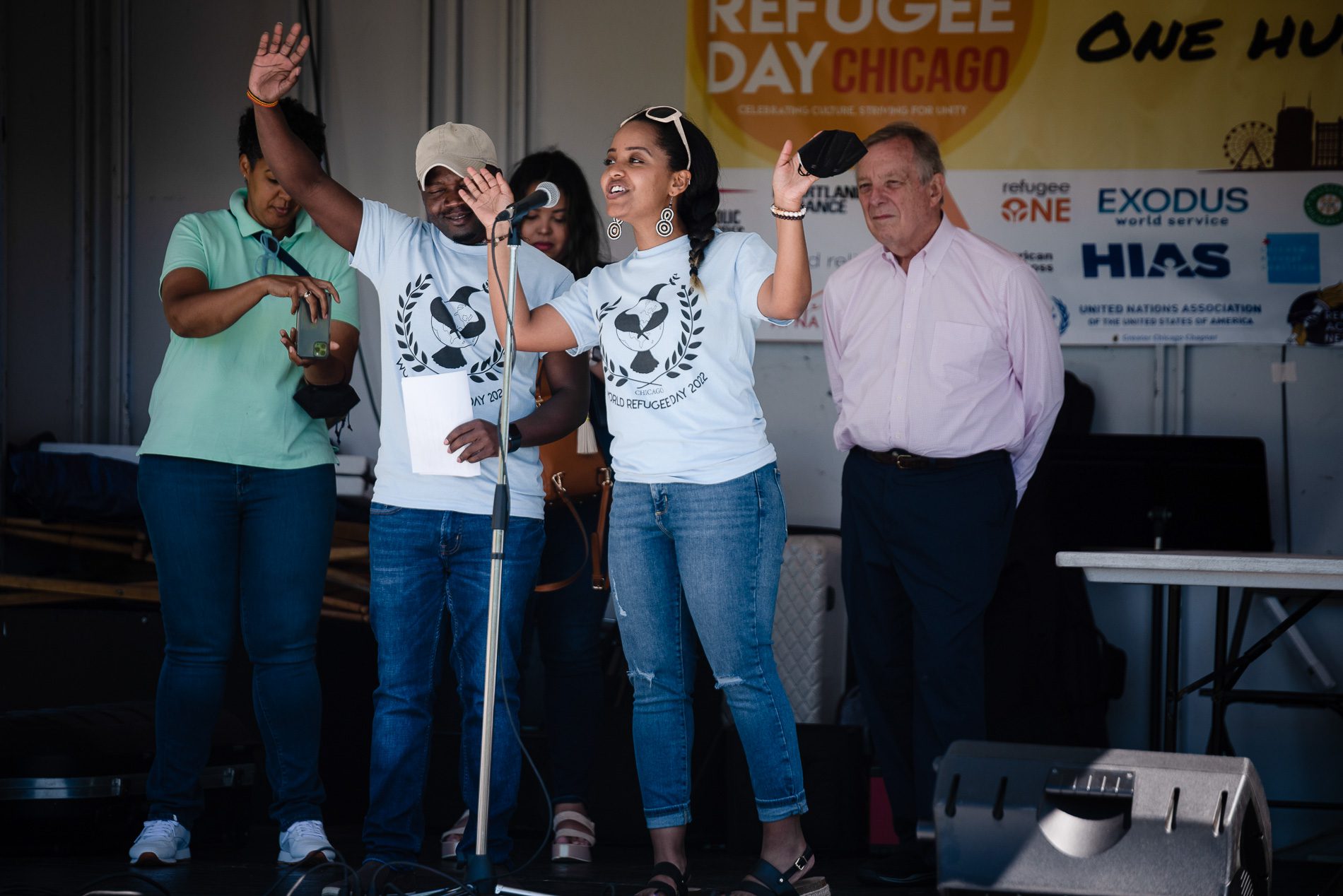
El Día Mundial del Refugiado de Chicago es una celebración de las comunidades de refugiados y de los recién llegados, dijeron, más que un lugar para que la gente acceda a los servicios.
"Normalmente, las agencias de reasentamiento y las organizaciones que ayudan, [ayudan a los refugiados] desde un tiempo y un lugar donde hay dinámicas de poder", dijo Zellelew. "Nuestro enfoque es la accesibilidad de la comunidad, la creatividad, la celebración y la organización de base".
En su mayor parte, el evento también está organizado por los propios refugiados. Yaaka es un refugiado de Uganda y vivió en un campo de refugiados en Kenia hasta que se le concedió asilo en Estados Unidos en julio de 2018. El padre de Zellelew llegó a Chicago desde Etiopía como refugiado en la década de 1980 y se convirtió en un miembro activo de la Asociación de la Comunidad Etíope de Chicago. Su madre, embarazada de Rebkah, se unió más tarde a él como asilada.
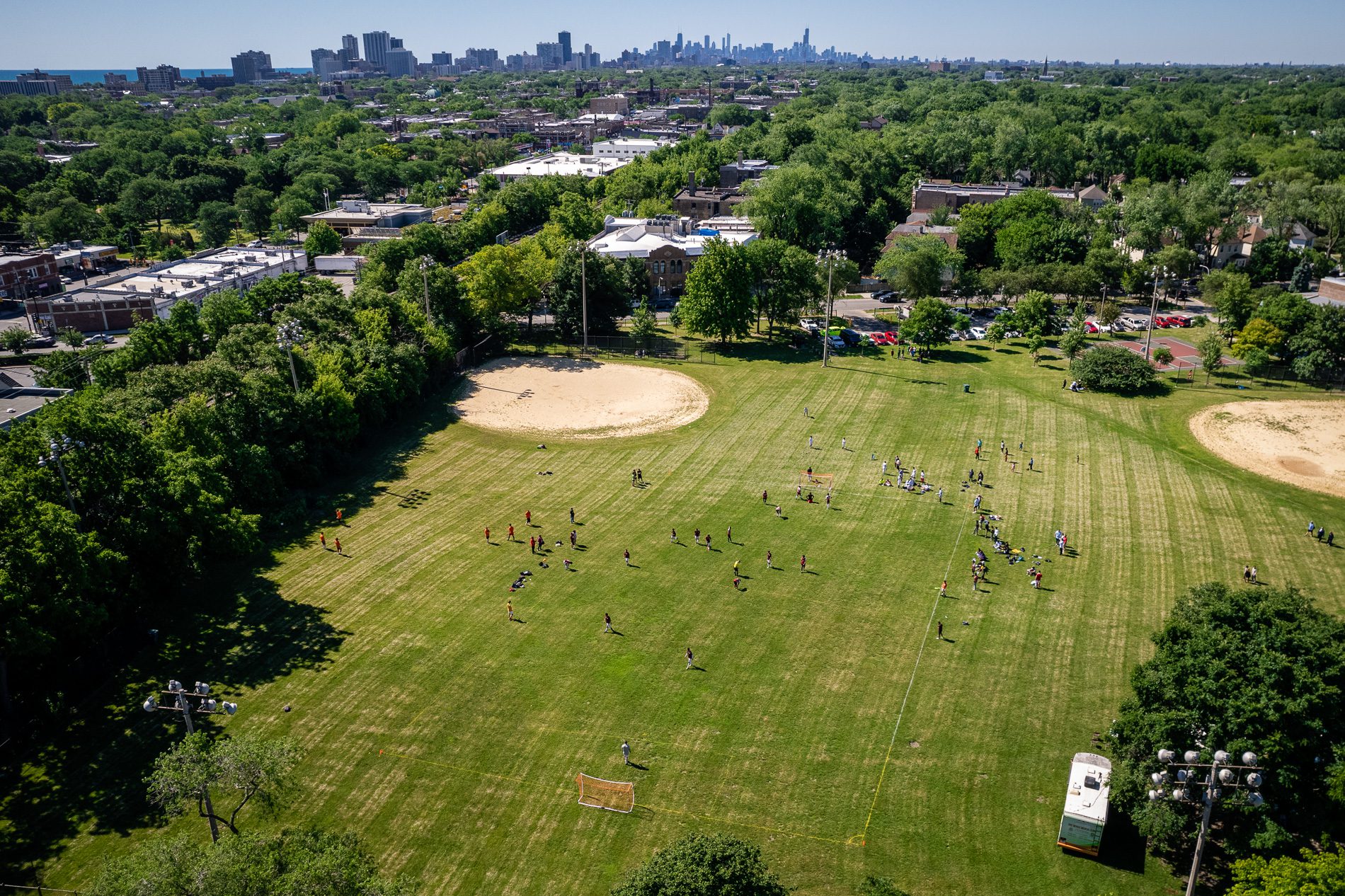
"Fue uno de los primeros etíopes que llegaron a Chicago", dice Zellelew sobre su padre. "Creo que a partir de ahí, simplemente se convirtió en una identidad cultural para nosotros devolver a nuestra comunidad y trabajar en familia, porque él no tenía familia aquí".
Aunque la mayoría de los equipos representaban a refugiados de un país, otros, como el de Polat, optaron por renunciar a las alianzas nacionales en aras de la victoria. Nyibampa Wilson, un joven de 19 años que llegó de Tanzania a Estados Unidos como refugiado en 2012, decidió que, en lugar de jugar con su antiguo equipo, se uniría a Invincible United, un equipo totalmente malayo.
Los Invencibles nombraron capitán a Wilson y ganaron su primer partido.
"Conozco todos y cada uno de los detalles de cada jugador", declaró Wilson cuando se disponía a enfrentarse a sus antiguos compañeros. "He jugado con ellos. Sé adónde van a ir".
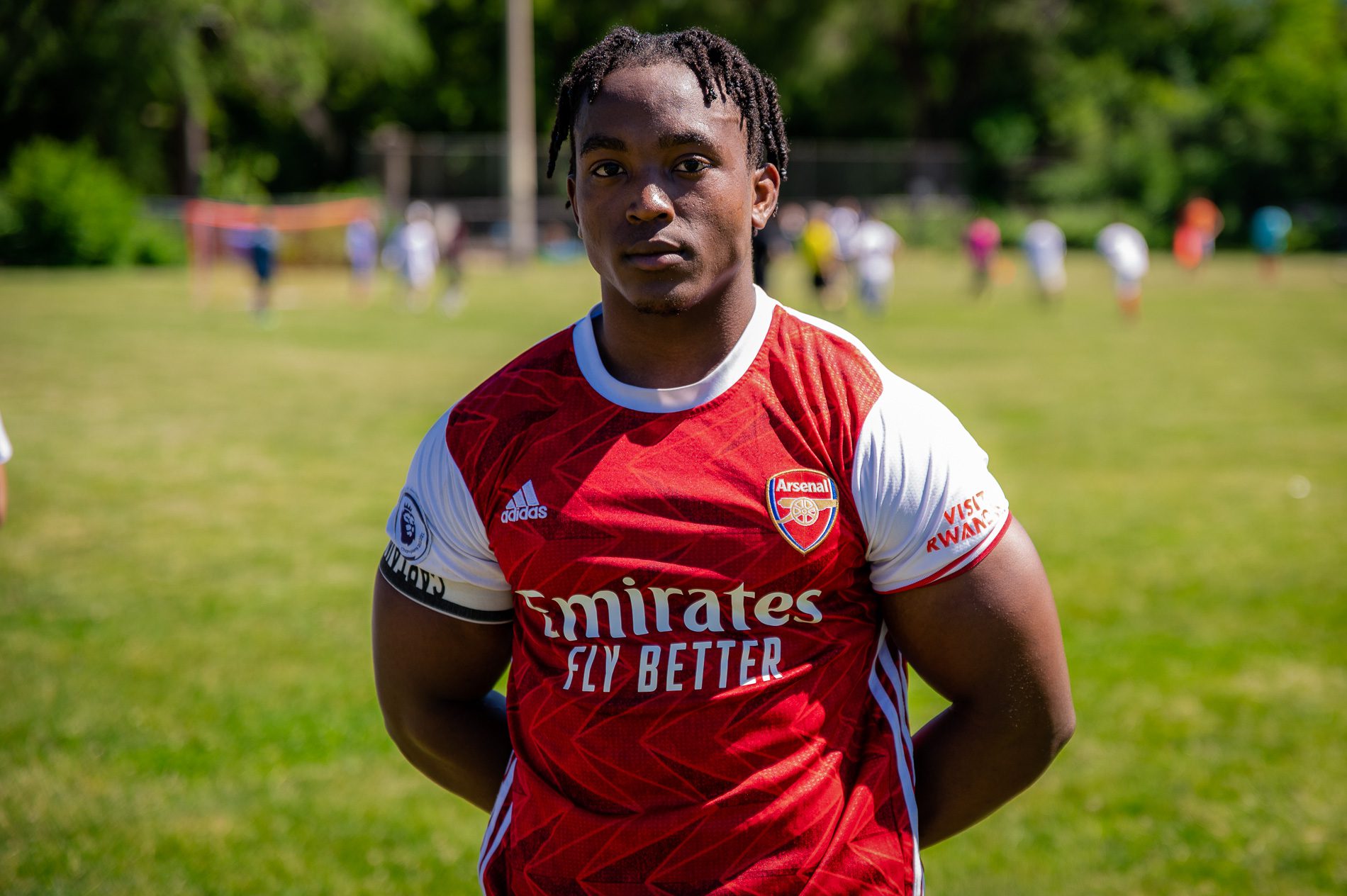
El torneo de fútbol, de un día de duración, llegó a su fin con la victoria del equipo Black Panthers, que también ganó el título en 2019. Los jugadores del equipo procedían de varios países, como el Congo, Nigeria, Togo y Senegal. Hablaban una mezcla de francés e inglés, y muchos no se conocían ni habían jugado nunca al fútbol juntos. Para salvar las distancias, se llamaban por apodos, como Sadio Mané, sensación del fútbol senegalés, y Edouard Mendy, portero del mismo país que ganó la Copa Africana de Naciones este año.
Moshood Olanrewaju, un inmigrante nigeriano que lleva 12 años organizando el torneo, afirma que eso es lo que más le gusta del acontecimiento.
"El chico negro jugaba con el verde, y el verde con el azul", dijo Olanrewaju, refiriéndose a los colores de las camisetas de los jugadores. "Incluso el equipo que ganó, algunos de ellos simplemente se llamaron para jugar y aparecieron. Creo que eso es lo bonito".

